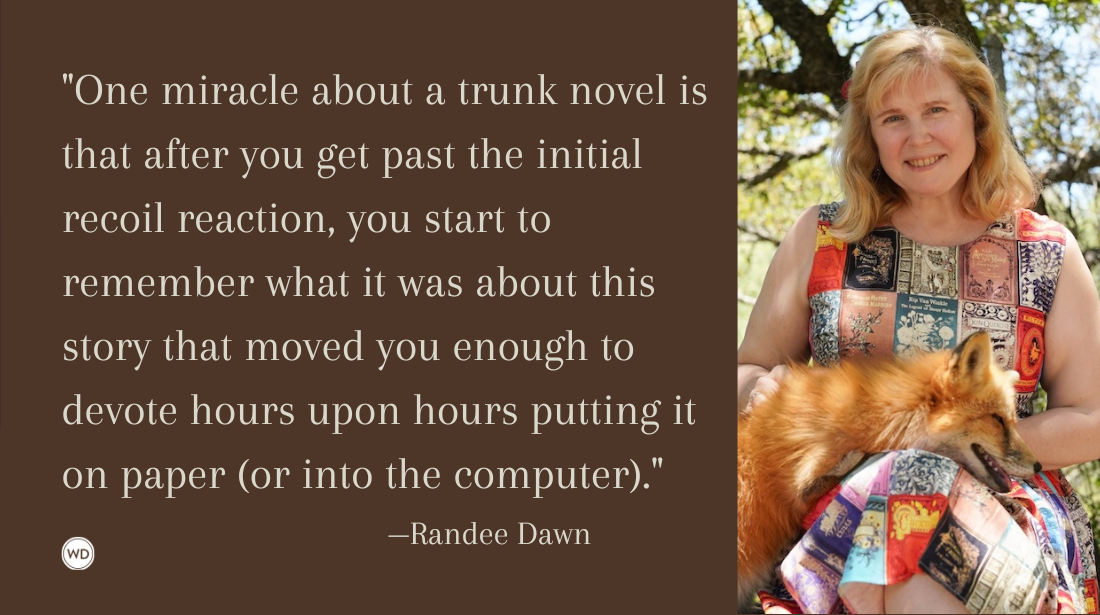Income Tax Management for a Freelancer
Being your own boss is a reality for many full-time writers, but being your own boss means tracking your income in a unique way. Here, C. Hope Clark discusses income tax management for a freelancer.
Most of the world dreams of being their own boss. As a writer, the dream sounds glorious, and for the most part, it is. However, as your own boss, you assume those responsibilities, which include accounting and taxes.
Suddenly you must identify the minutiae that comes with working for yourself, and with income taxes, you better get those details correct. The best start is knowing where to start. What in your freelance writing, work-for-yourself world, is income, what is expense, and what doesn’t matter?
The Right System Matters First
You find much advice on what to record in your ledger, but few resources tell you how to define a system of keeping up with those numbers. Tallying income and expenses is more than throwing receipts in a desk drawer or sliding emails into a file, leaving you to sift and sort through them between January and April in a mad-house attempt to beat the April 15 deadline.
Even multiple files, identified by such names as Supplies, Travel, Advertising, and Subscriptions, are easier than one fat file of everything, but you do have better options than that. In choosing that option, realize that bookkeeping is more than number collection. A major benefit of a good system gives you the ability to plan from any point in time.
Your system should enable you to see your income in terms of what you’ve earned, what you’ve paid, what is still owed to you, and what you owe others. Knowing your expenses allows you to control cash flow, create budgets, and manage your business.
At any point you can see whether you are ahead, behind, or on schedule for success. Such organization allows you to tweak your plans for a better future by being able to make fast, informed decisions and improve profitability throughout the year instead of at the end of it. You also better position yourself in terms of communicating with your bank, your accountant, and IRS. You see when you need to speed up, snare more clients, make more appearances, and advertise as well as when you might afford a vacation.
Spreadsheet versus Software
If you manage a rather small writing service, or have a fairly simplified writing career without a lot of irons in the fire, a spreadsheet might be just fine. With the right columns and formulas, nothing difficult, you have all you need. But as you grow, you may find the spreadsheet becoming more limited and yourself trying to figure out how to alter the columns for diverse income sources and hidden costs you hadn’t counted on not to mention a need to handle invoices and payments.
Software throws details into the right categories, incorporating reporting into your toolbox, which can come in handy for seeing your career on a broader scale not to mention prove yourself to banks and accountants, if the need arises. Some software will assist with invoicing and bill payment, keeping the data safely stored in the cloud. You can scan receipts instead of typing them in, with some even preparing your tax return.
While you may not relish the learning curve of new software, in the long run you find yourself saving not only time but also preserving credibility by being accurate, timely, and impressive in your financial and professional dealings.
Software to consider are QuickBooks Online, QuickBooks Self-Employed, Zoho Books, FreshBooks, Wave, and Lendio. Some have free versions. Your specific need will make one better than the others. Shop with serious intent since this marriage matters.
Income
That little affiliate link you placed on your website provides income. That Amazon kickback you received from posting books for sale through your affiliate code, is income. Royalties, of course, and funds received from writing those articles. Did someone use your newsletter or website to advertise their work? Income. Did the Friends of the Library hand you a thank-you note with $25 inside? Income. Those little tokens add up, plus anything with a paper trail between the payor and the payee most certainly notes recording.
You can receive income in assorted ways. The 1099 Forms are the easiest to keep track of, but not every person who pays you will provide one. Your bank statement is a good record. If you deposit checks through your phone’s camera, you have the actual check as a record. Attach each to the contract, and if you have no formal contract, copy off the email in which you agreed to the terms.
Credit card processing companies like PayPal, Square, FreshBooks, QuickBooks, Wave, and Stripe can not only streamline taking in income, but also invoice clients and provide reports for your taxes. Some can automatically feed your tax return. Most have a follow-up system to remind you when payments are owed to you. They don’t just take people’s money anymore. They help you juggle the business.
And just because an entity was supposed to send you a 1099 (paid you $600 or more) and didn’t, doesn’t remove the responsibility off you to claim the income. If you received the income, you are obliged to claim it.
Income References to Count:
- 1099 Forms
- Checks
- Credit card payments
- Bank transfers (like Venmo and Zelle)
- Direct deposits
- Gift cards
- Cash
Types of Income to Count:
- Royalties
- Advances
- Affiliate commissions
- Contracts
- Honorariums
- Speaking fees
Grants:
- Contest winnings
- Fellowships/scholarships
- Direct sales
- Service fees (editing, formatting, etc.)
Expenses
The logic is, if you need it for work, it’s likely deductible, often when it’s a personal expense as well, like Internet connection and the phone. Some expenses are so routine in your life that you forget to count them toward the business.
Consider these expenses when managing your writing business ... any kind of writing business.
- Internet
- Office supplies (paper, ink, notebooks, Post-It notes, etc.)
- Postage
- Advertising and marketing
- Software
- Equipment (fax, copier, scanner, shredder, camera, computer, printer, laptop, headset, microphone, light ring/lighting kit, etc.)
- Furnishings (devoted exclusively to the business, like bookcase, lamp, chair, organizer, the candle you light to write your novel, etc.)
- Travel to post office, office supply, interviews, bookstores, appearances, research, etc. to include meals in many cases
- Medical insurance (if not provided by an employer)
- Home-office (pro-rated based on size of your residence)
- Improvements to home-office
- Paying others (sub-contracting work, purchasing articles)
- Subscriptions
- Professional fees (organizations, chamber of commerce, memberships)
- Banking and credit card fees
- Sales tax on tangible goods sold like books
- Rental of items or space needed for work, project, or an event
Mistakes
Crunch time, when April 15 looms atop of scrambling to fulfill contracts or finish a novel, is when people realize the error of their ways in terms of financial management. Tasks they should have done, which feel rather back-burner in terms of importance throughout the year, become more in-your-face and critical.
- Not paying estimated taxes. A freelancer doesn’t have an employer withholding taxes throughout the year. Truth is, if you owed over $1,000 in last year’s filing, you are supposed to file quarterly since United States’ income tax system is a pay-as-you-go program. But this practice is often ignored. How much do you pay on April 15, July 15, October 15, and January 15 if you aren’t sure whether the year will end up in your favor or not? Thus the need for a nice piece of software to manage your numbers and, therefore, the estimated profit or loss of your business from quarter to quarter, if not month to month. To avoid a fine, pay quarterly. Doing so makes April 15 less painful.
- Not keeping good records. You may have had expenses, but without the documentation for them you lose the deduction and increase the taxes you have to pay. Mileage is a good example of an easy loss without the log to back up the trips. Bottom line is every penny spent and every penny earned needs tangible validation, otherwise known as a paper trail. Again, an argument to purchase good financial software.
You may think you made no profit as a writer, or didn’t earn enough to have to pay taxes, but in all the back and forth of income and expenses, you ‘ll have to prove it through your record-keeping and still file a return. Therefore, if you choose writing for a profession, whether you make $1,000 or $100,000, treat it like a successful full-fledged career and keep track of the incoming and outgoing dollars. Efficiency in your record-keeping not only saves you net dollars to put in your pocket, but also earns you more time to write.
(Plus, don’t forget your state income tax and possibly a city income tax, depending upon where you live. They all take the same records.
C. Hope Clark is the founder of FundsforWriters.com, noted by Writer's Digest for its 101 Best Websites for Writers for 20+ years. She is a freelance writer, motivational speaker, and award-winning author of 16 mysteries. www.chopeclark.com | www.fundsforwriters.com








